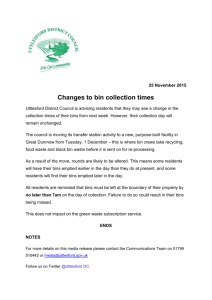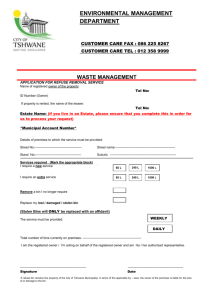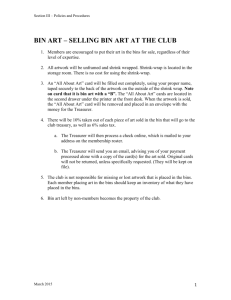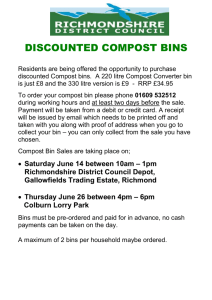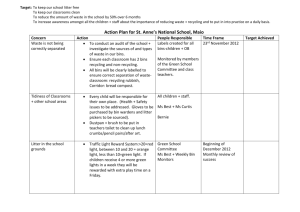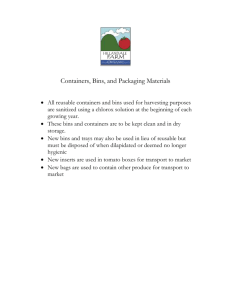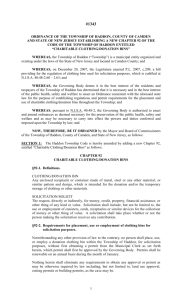Recommendation for Township Committee Action
advertisement
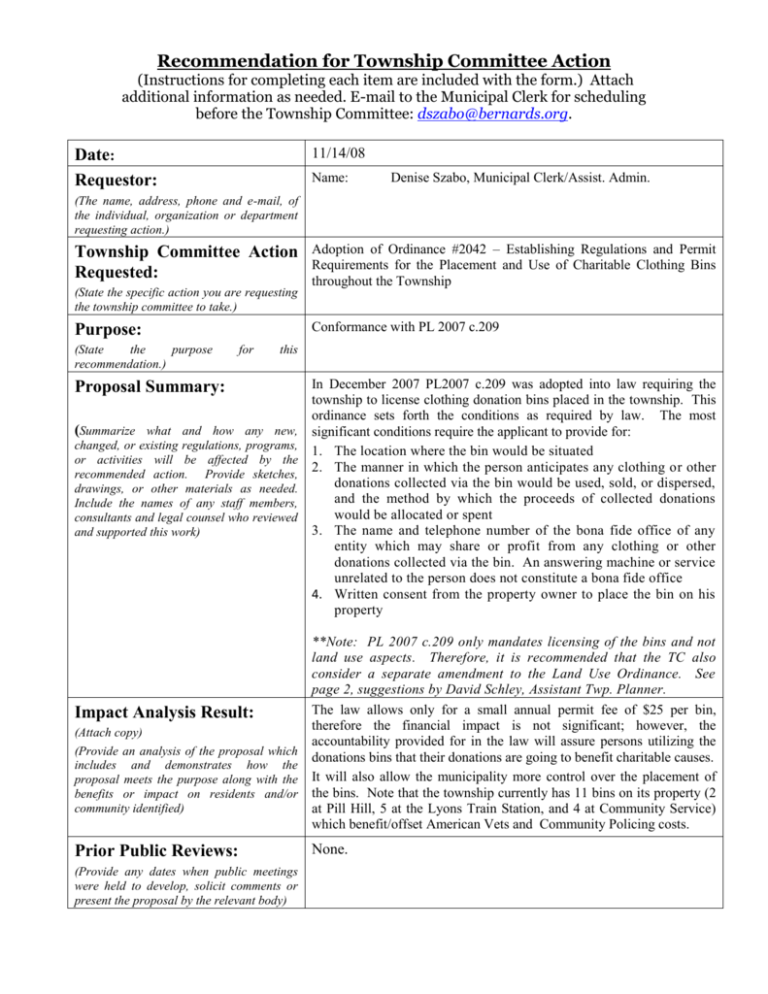
Recommendation for Township Committee Action (Instructions for completing each item are included with the form.) Attach additional information as needed. E-mail to the Municipal Clerk for scheduling before the Township Committee: dszabo@bernards.org. 11/14/08 Date: Requestor: Name: Denise Szabo, Municipal Clerk/Assist. Admin. (The name, address, phone and e-mail, of the individual, organization or department requesting action.) Township Committee Action Requested: (State the specific action you are requesting the township committee to take.) Conformance with PL 2007 c.209 Purpose: (State the purpose recommendation.) Adoption of Ordinance #2042 – Establishing Regulations and Permit Requirements for the Placement and Use of Charitable Clothing Bins throughout the Township for this Proposal Summary: (Summarize what and how any new, changed, or existing regulations, programs, or activities will be affected by the recommended action. Provide sketches, drawings, or other materials as needed. Include the names of any staff members, consultants and legal counsel who reviewed and supported this work) In December 2007 PL2007 c.209 was adopted into law requiring the township to license clothing donation bins placed in the township. This ordinance sets forth the conditions as required by law. The most significant conditions require the applicant to provide for: 1. The location where the bin would be situated 2. The manner in which the person anticipates any clothing or other donations collected via the bin would be used, sold, or dispersed, and the method by which the proceeds of collected donations would be allocated or spent 3. The name and telephone number of the bona fide office of any entity which may share or profit from any clothing or other donations collected via the bin. An answering machine or service unrelated to the person does not constitute a bona fide office 4. Written consent from the property owner to place the bin on his property **Note: PL 2007 c.209 only mandates licensing of the bins and not land use aspects. Therefore, it is recommended that the TC also consider a separate amendment to the Land Use Ordinance. See page 2, suggestions by David Schley, Assistant Twp. Planner. The law allows only for a small annual permit fee of $25 per bin, Impact Analysis Result: therefore the financial impact is not significant; however, the (Attach copy) accountability provided for in the law will assure persons utilizing the (Provide an analysis of the proposal which donations bins that their donations are going to benefit charitable causes. includes and demonstrates how the proposal meets the purpose along with the It will also allow the municipality more control over the placement of benefits or impact on residents and/or the bins. Note that the township currently has 11 bins on its property (2 community identified) at Pill Hill, 5 at the Lyons Train Station, and 4 at Community Service) which benefit/offset American Vets and Community Policing costs. Prior Public Reviews: (Provide any dates when public meetings were held to develop, solicit comments or present the proposal by the relevant body) None. From: DAVID SCHLEY Sent: Thursday, November 06, 2008 2:30 PM To: DENISE SZABO Cc: Hosea Harvey; BRUCE MCARTHUR; Francis Decibus; Peter Messina Subject: RE: Ordinance Concerning the Licensing of Clothing Bins Denise, A clothing bin is definitely a “structure” as defined by ordinance, however, in most cases it wouldn’t be “accessory” because it wouldn’t be incidental to the principal use on the lot. Technically, in most cases (perhaps an exception being a church property), I would view a clothing bin as a second principal use, which wouldn’t be permitted in most zones. I’m not sure how permissive or restrictive we want to be, but one suggestion is to have two categories, such as: 1. On Township-owned property (or, alternatively, for Public Purpose Uses, which would also include Board of Ed and Fire/First Aid properties), we could permit the bins without any specific location requirements. Locations and other details would obviously be subject to the property owner’s approval. 2. On private properties in nonresidential zones, we could allow bins as a permitted use, subject to compliance with all of the requirements for accessory structures in that zone. The bin would then be regulated the same as a shed. I think the above concept provides some level of regulation without getting too complicated. Dave
